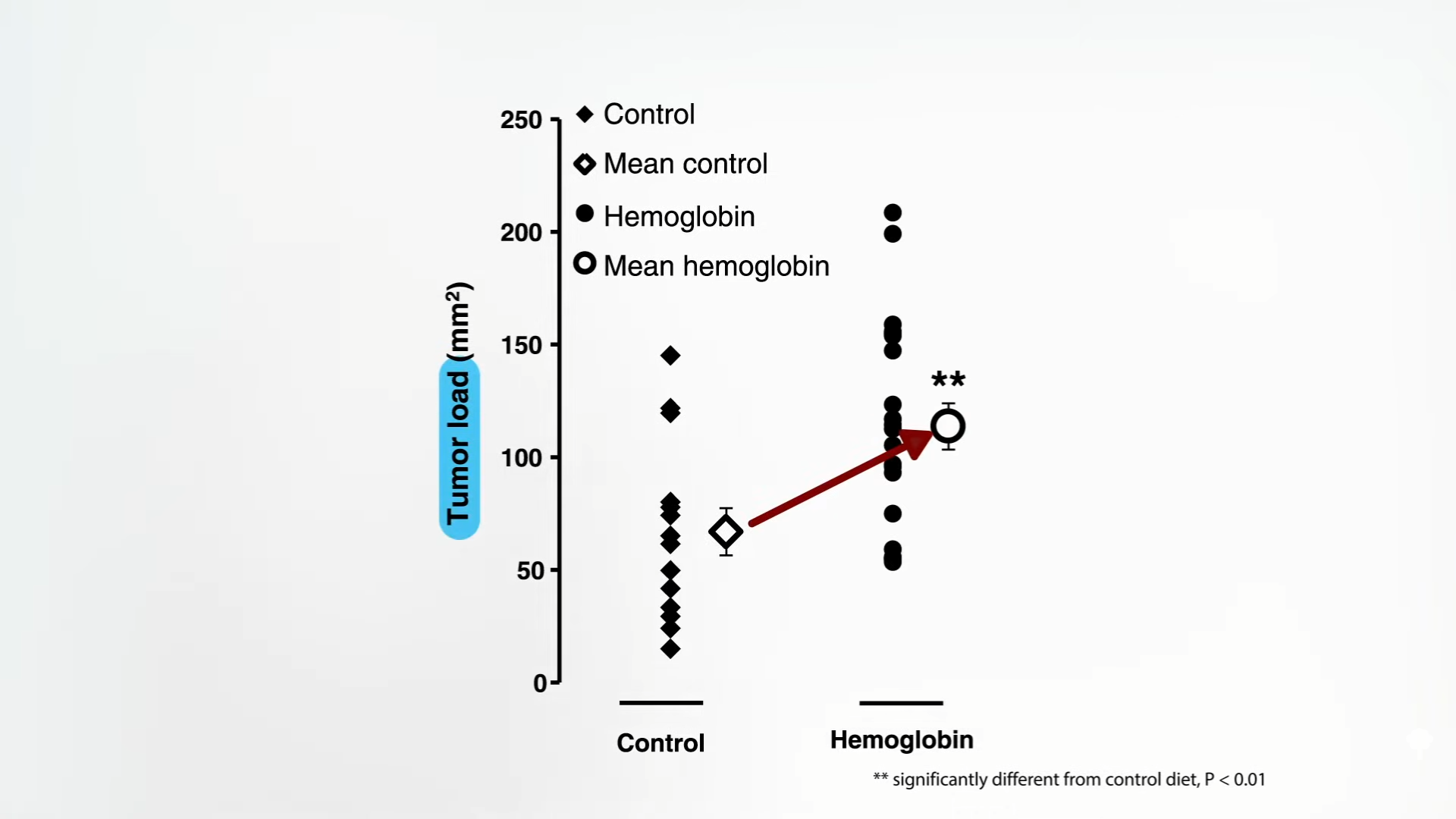Laboratory models suggest that extreme doses of heme iron may be detrimental, but what about the effects of nutritional doses in humans?
In muscle meat, there is a heme protein that contributes to, well, the meaty taste of meat. There’s also a heme protein in the roots of soybean plants that can be churned out to provide a similar flavor and aroma in plant-based meat, which is used to make the Impossible Burger possible. The question is: Are there any downsides?
When the European Food Safety Authority was considering the safety of adding heme iron to foods, its main concern was a potential increased risk of colon cancer. As you can see below and at 1:00 in my video Does Heme Iron Cause Cancer?, we know meat causes cancer. Processed meat—bacon, ham, hot dogs, sausages, and lunch meat—is considered a Group 1 carcinogen, meaning we know it causes cancer in people with the same level of certainty that something like smoking causes cancer, whereas something like a burger probably causes cancer in people, kind of like DDT. But what’s the role of heme iron?
There are all sorts of potential mechanisms to explain the cancer risk. Meat has the pro-inflammatory long-chain omega-6 arachidonic acid and more of the aging- and cancer-associated methionine, trans fat, and endogenous hormones like IGF-1, not to mention the ones that are implanted in animals as “exogenous hormonal growth-promoters.” Then there are all the toxic pollutants that build up the food chain, like pesticides and formaldehyde.
According to the prestigious IARC, the International Agency for Research on Cancer, “there is strong evidence that HAAs [heterocyclic aromatic amines], by causing DNA damage, contribute to carcinogenic mechanisms associated with the consumption of red meat.” These DNA-damaging compounds are formed when muscle tissue is exposed to high, dry heat like grilling, roasting, baking, and broiling—basically anything above steaming or stewing. There is also “strong evidence” that the formation of so-called N-nitroso compounds contributes to the cancer-causing mechanism. Those are carcinogens that can form inside our gut when we eat meat. However, there is also “strong evidence that haem [heme] iron contributes to the carcinogenic mechanisms associated with red and processed meat.”
Normally I might leave it there, but other authoritative bodies I respect, like the American Institute for Cancer Research and the World Cancer Research Fund, are more tentative. While they agree there is some evidence that the “consumption of foods containing haem iron might increase the risk of colorectal cancer,” they consider the evidence suggesting such a connection to be limited.
Much of the available evidence is based on data from lab animals, such as the study titled “Dietary Heme Induces Gut Dysbiosis, Aggravates Colitis, and Potentiates the Development of Adenomas in Mice,” in which dietary heme was found to disrupt the gut flora, aggravate inflammation, and potentiate the development of intestinal tumors in mice. But it’s critical to note that, in all the laboratory animal models that have been used, the rodents ingested meat or heme equivalent to humans eating up to 40,000 pounds (18,000 kilograms) of meat a day. Even the smallest dose would be about a dozen daily Impossible Burgers.
In another study, ascribing “a central role for heme iron” in the development of colon cancer associated with meat intake, the authors claimed they “aimed at determining, at nutritional doses, which is the main factor involved and proposing a mechanism of cancer promotion by red meat.” So, heme “doses were chosen to mimic red meat consumption,” and, indeed, there was a significant increase in tumor load, as you can see here and at 3:41 in my video.

The researchers concluded that their “results strongly suggest that at concentrations that are in line with human red meat consumption, heme iron is associated with the promotion of colon carcinogenesis,” that is, cancer development. However, if you look at the actual diet given to the participants and do the math, it was 500 times the level of heme found in people’s diets, in excess of about 20 pounds of meat a day. Of course, even if they really did use the right doses, they’re still going to end up with data on the wrong species, which brings us to clinical studies that we’ll explore next.
This is part of a nine-video series on plant-based meats. If you missed any of the other earlier installments, check out the related posts below.
The final two videos in the series are coming up next. See Heme-Induced N-Nitroso Compounds and Fat Oxidation and Is Heme the Reason Meat Is Carcinogenic?.




